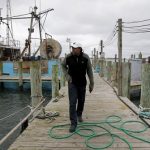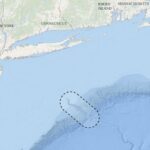Tag Archives: Fishery Science
Scientists at Work: Uncovering the Mystery of When and Where Sharks Give Birth
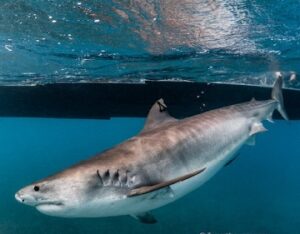 If you have a toddler, or if you encountered one in the last year, you’ve almost certainly experienced the “Baby Shark” song. Somehow, every kid seems to know this song, but scientists actually know very little about where and when sharks give birth. The origins of these famous baby sharks are still largely a mystery. Many of the large iconic shark species – like great whites, hammerheads, blue sharks and tiger sharks – cross hundreds or thousands of miles of ocean every year. Because they’re so wide-ranging, much of sharks’ lives, including their reproductive habits, remains a secret. Scientists have struggled to figure out precisely where and how often sharks mate, the length of their gestation, and many aspects of the birthing process. >click to read< 13:51
If you have a toddler, or if you encountered one in the last year, you’ve almost certainly experienced the “Baby Shark” song. Somehow, every kid seems to know this song, but scientists actually know very little about where and when sharks give birth. The origins of these famous baby sharks are still largely a mystery. Many of the large iconic shark species – like great whites, hammerheads, blue sharks and tiger sharks – cross hundreds or thousands of miles of ocean every year. Because they’re so wide-ranging, much of sharks’ lives, including their reproductive habits, remains a secret. Scientists have struggled to figure out precisely where and how often sharks mate, the length of their gestation, and many aspects of the birthing process. >click to read< 13:51
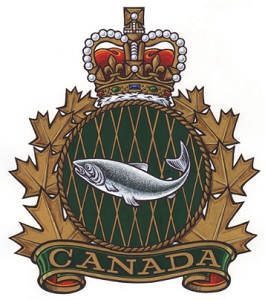
Scientists Level New Critiques of Fisheries and Oceans Canada’s Scientific Rigor
Twenty-five years ago, after the collapse of the Atlantic cod fishery, Jeffrey Hutchings, a preeminent fisheries scientist and professor at Dalhousie University in Nova Scotia, sounded the alarm that Canada’s federal fisheries department was allowing “nonscience influences” in critical decision-making. Writing at the time, he said, “There is a clear and immediate need for Canadians to examine very seriously the role of bureaucrats and politicians in the management of Canada’s natural resources.” Today, a new crop of researchers is once again imploring Fisheries and Oceans Canada (DFO) to change its ways. At the core of their concerns is a number of systemic and structural ways in which DFO gathers, parses, and handles scientific information, and how that advice is passed on to decision-makers. >click to read< 09:20
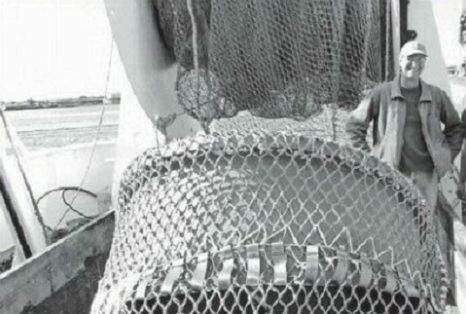
Jim Kendall – Finding Common Ground
With regard to the letter from Sam Novello posted on Fisherynation.com, Finding Common Ground off to a Bad Start, he very eloquently laid out some of the faults, errors, and out and out incompetence of the Northeast Fisheries Science Center with respect to their continued mismanagement of the Northeast fisheries stock assessments. I know from past work and associations with the NEFSC that this has been going on for so long that they likely now believe their own Mantra about their science being the best (and only way) in which to compile the NE groundfish stock assessment. Unfortunately groundfish is not their only problematic stock assessment. >click to read< 16:32
Better Science Means More Fish
 “States should apply the precautionary approach widely to conservation, management and exploitation of living aquatic resources in order to protect them and preserve the aquatic environment. The absence of adequate scientific information should not be used as a reason for postponing or failing to take conservation and management measures (from the United Nations Food and Agricultural Organization’s Code of Conduct for Responsible Fisheries).” Or in fewer words, if you aren’t completely sure of the outcome, don’t take an action. It’s called the “precautionary principle”,,,Read more here onlinefisherman.com 14:16
“States should apply the precautionary approach widely to conservation, management and exploitation of living aquatic resources in order to protect them and preserve the aquatic environment. The absence of adequate scientific information should not be used as a reason for postponing or failing to take conservation and management measures (from the United Nations Food and Agricultural Organization’s Code of Conduct for Responsible Fisheries).” Or in fewer words, if you aren’t completely sure of the outcome, don’t take an action. It’s called the “precautionary principle”,,,Read more here onlinefisherman.com 14:16

































